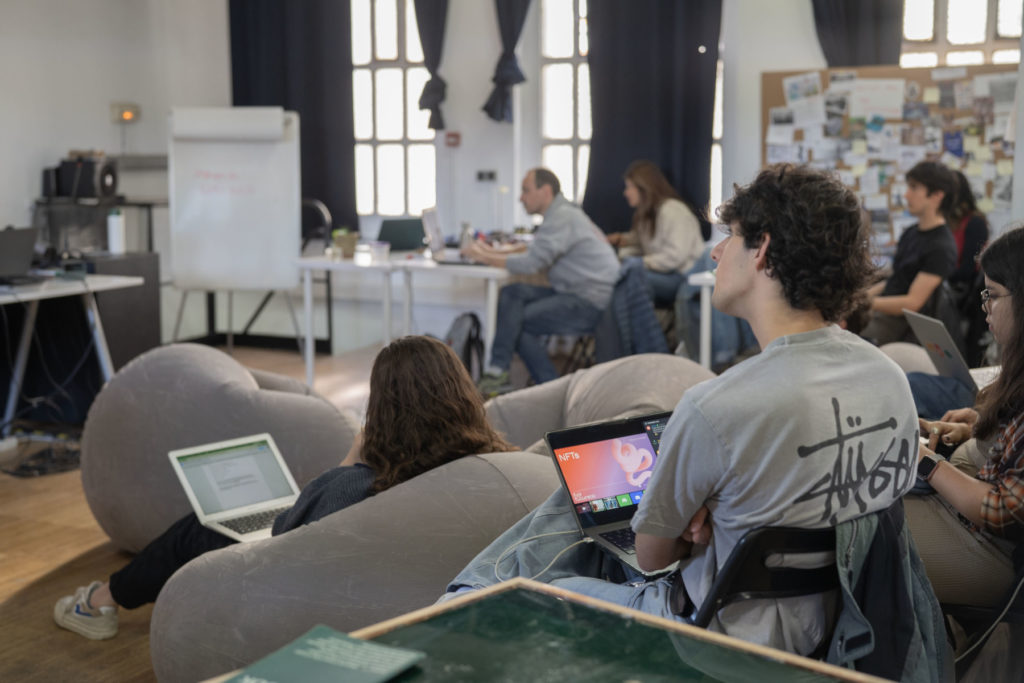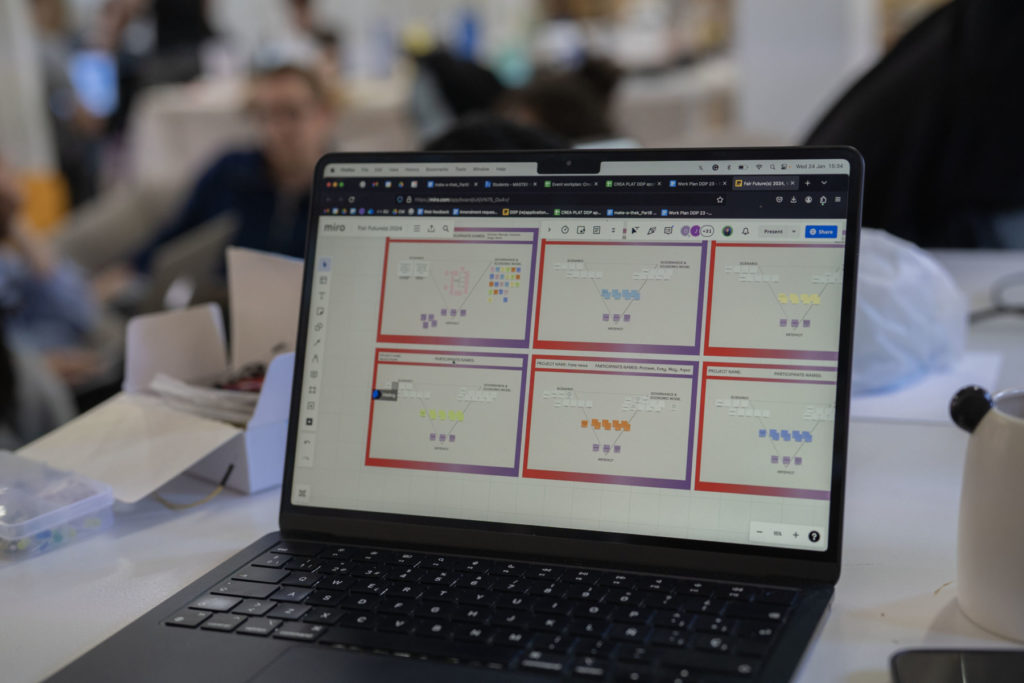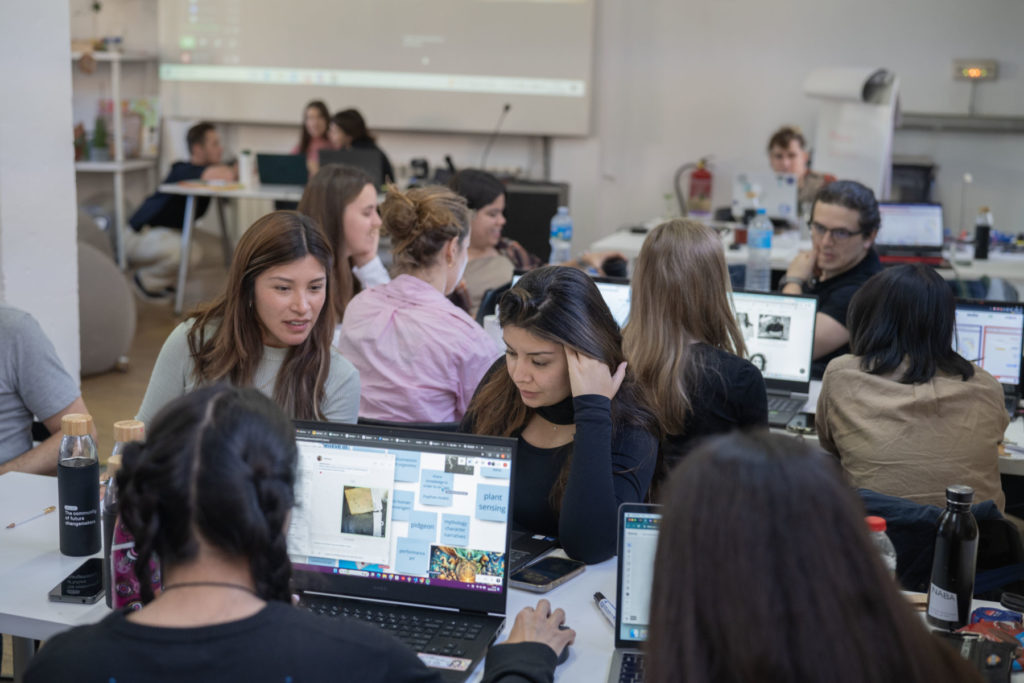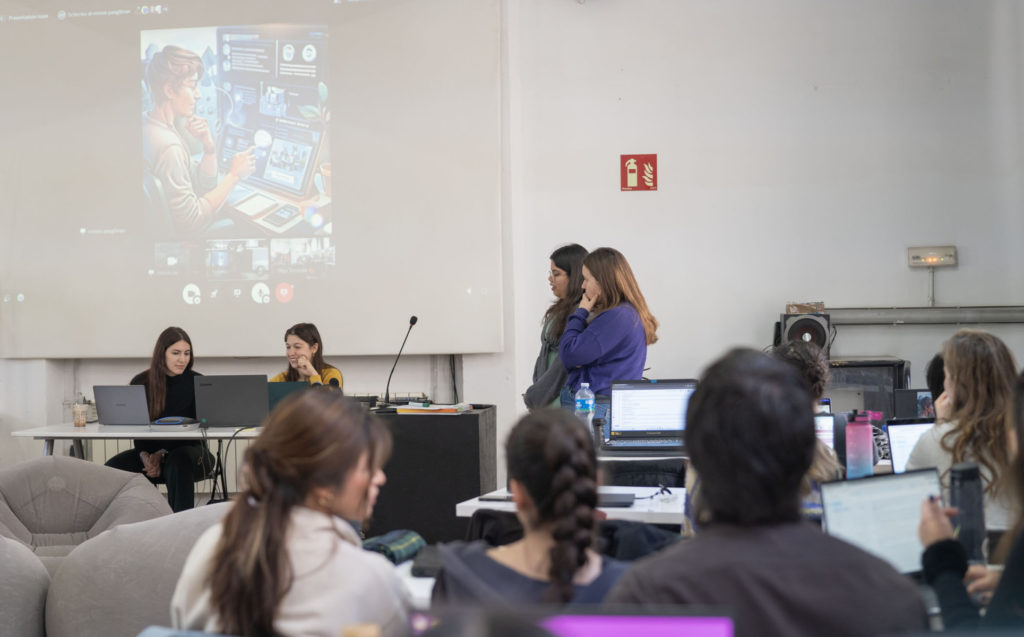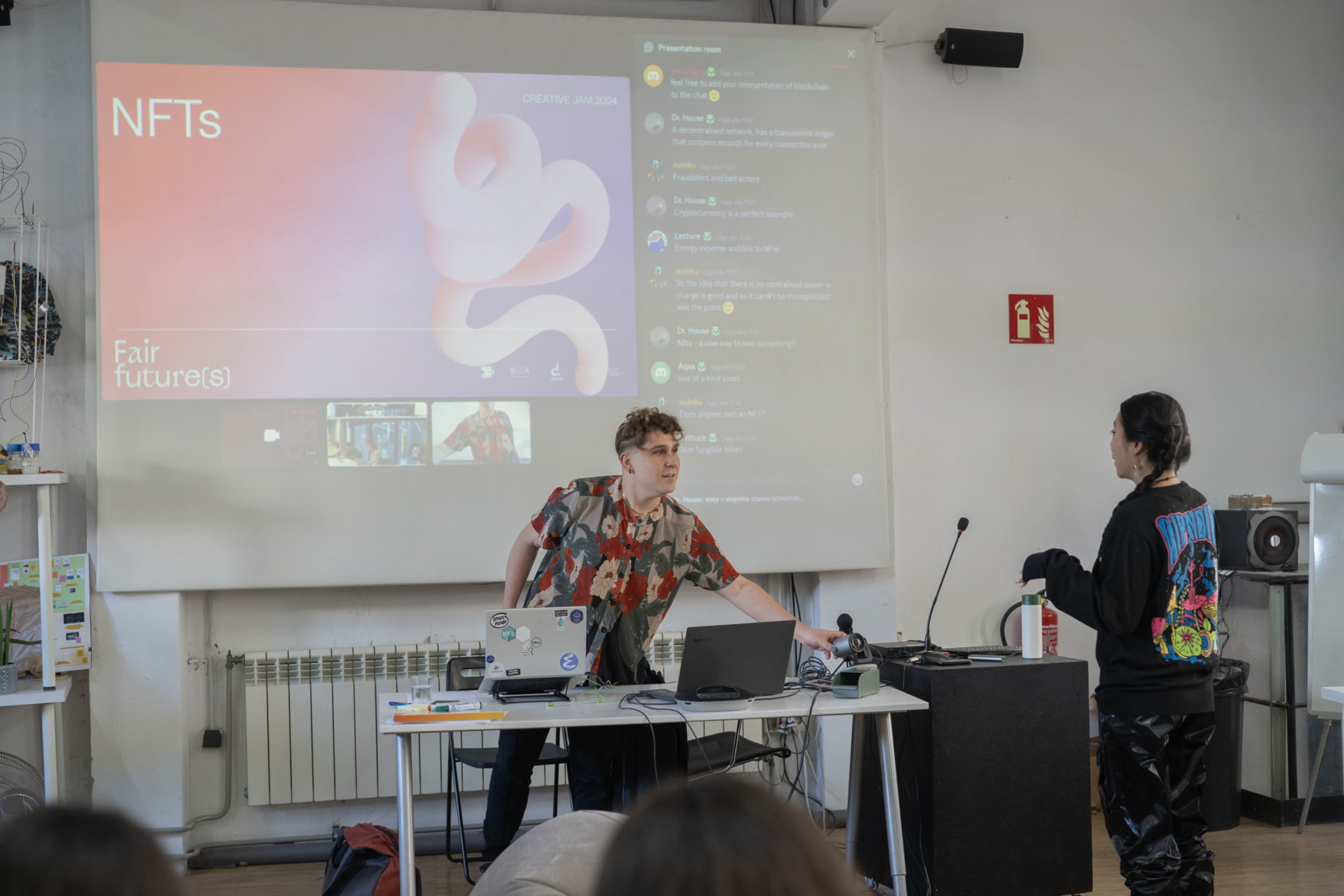
Fair Future(s): Designing with Collective Intelligence
MDEF students delving into digital commons, blockchain, and NFTs
The recent international Creative Jam, within the context of the “Fair Future(s): Designing with Collective Intelligence” seminar, offered an immersive and speculative exploration into the intersection of technology and magic. It was held from January 23rd to 26th, 2024, in collaboration between the Distributed Design Platform and the School of Digital Arts at Manchester Metropolitan University within the context of the EU-funded Horizon project DAFNE+.
Over four days, students from the Master in Design for Emerging Futures in Barcelona and the students at the School of Digital Arts in Manchester engaged in talks, workshops, and self-organized working sessions, immersing themselves in topics such as Digital Commons, decentralized governance in Distributed Autonomous Organizations (DAOs), Blockchain, NFTs, Smart contracts and the role and responsibility of creatives within this landscape.
Through inspirational lectures from Ax Mina, Henry Cooke all involved students gained a conceptual understanding of the concepts and through hands-on workshops hosted by Ámbar Tenorio Fornés from Fab City Foundation learned how to apply them to real-case scenarios.
Sharing the development between the international teams, students from both universities actively discussed and crafted future scenarios addressing contemporary challenges, with a focus on sub-narratives such as geographical, biological, technological, political of the current perma/poly crisis, aiming to create an artifact that could reflect alternative modes of operation and creative expression within the speculative scenarios they co-developed.
These projects were then presented within the framework of the DAFNE+ platform, introduced by Filisia Melissari from Synelixis and Ferdinando Bosco from Engineering, which supported the students in class and online to be onboarded to learn how to create, assess, and upload their artifacts NFTs on the platform. While collectively reflecting on the meaning of this action and exploring the new potentials for creation, distribution, and monetization through blockchain technology.
As one of the working groups points out: ‘Overall, the Fair Futures event was a turning point for our team. It grounded our understanding of complex technologies in practical applications, showing us how to leverage them for social and environmental impact through our project’.
Get to know the projects created by MDEF students:
EcoToken Community Initiative (ETCI)
A project by Carmen Robres de Veciana, Manuja Agnohotri, Carlotta Alberta Hylkema, Núria Valsells, Jorge De la Mora, and Emmanuel Pangilinan.
What is the challenge they address?
The EcoToken Community Initiative (ETCI) addresses the urgent challenge of climate change, specifically targeting energy inefficiency in residential heating and cooling.
What solutions are they proposing?
A multi-phased solution combining blockchain technology, smart devices, and community-driven governance. The initiative starts with the distribution of EcoTokens, a digital currency that rewards eco-friendly practices. Integrating blockchain-enabled smart thermostats allows for efficient temperature regulation and energy consumption tracking. The use of blockchain ensures data transparency and security, essential for trust and accountability.
FasciNation
A project by Oliver Lloyd, Dhrishya Ramadass, Marius Schairer, Sophie Marandon, Nicolò Baldi, and Francisca Herrera.
What is the challenge they address?
The project highlights how extremist political parties are increasing worldwide, especially focusing on hate speeches and discrimination.
What solutions are they proposing?
They are proposing to take advantage of open platforms like Dafne+ to increase discussions on these topics.
The project consists of an educational tool that shows how life would be living under an authoritarian regime. This tool is a videogame that can be downloaded from a repository directly from the Dafne+ platform. In the game, the player is a journalist who lives in this extreme reality, whose goal is to interact with the world and the other characters.
Dodo
A project by Anna Fedele, Jorge Muñoz, Vania Belen Bisbal Villacorta, Flora Rose Elise Berkowitz, Everardo Castro Torres, Anthuanet Falcon Quispe, Albert Vila, Ana Lozano, and Qianyin Du.
What is the challenge they address?
The destruction of ecosystems leading to loss of biodiversity and the lack of legal rights for non-human beings.
What solutions are they proposing?
Dodo DAO is a collective that shares experiences practicing the Honorable Harvest Manifesto as principles to grant legal rights to non-human beings, focusing on ecosystems. To translate these principles into actionable rules, the Honorable Harvest Kit has been developed, which will be distributed to each member of the DAO. It incorporates physical artifacts, such as a kit with a comprehensive set of instructions and tools, each representing a specific step of the manifesto. This interaction between digital communities and physical artifacts shows the impact they potentially have on the actual physical world. The dialogues with the characters are recorded in a notebook, as well as the player’s observations on the interactions.
